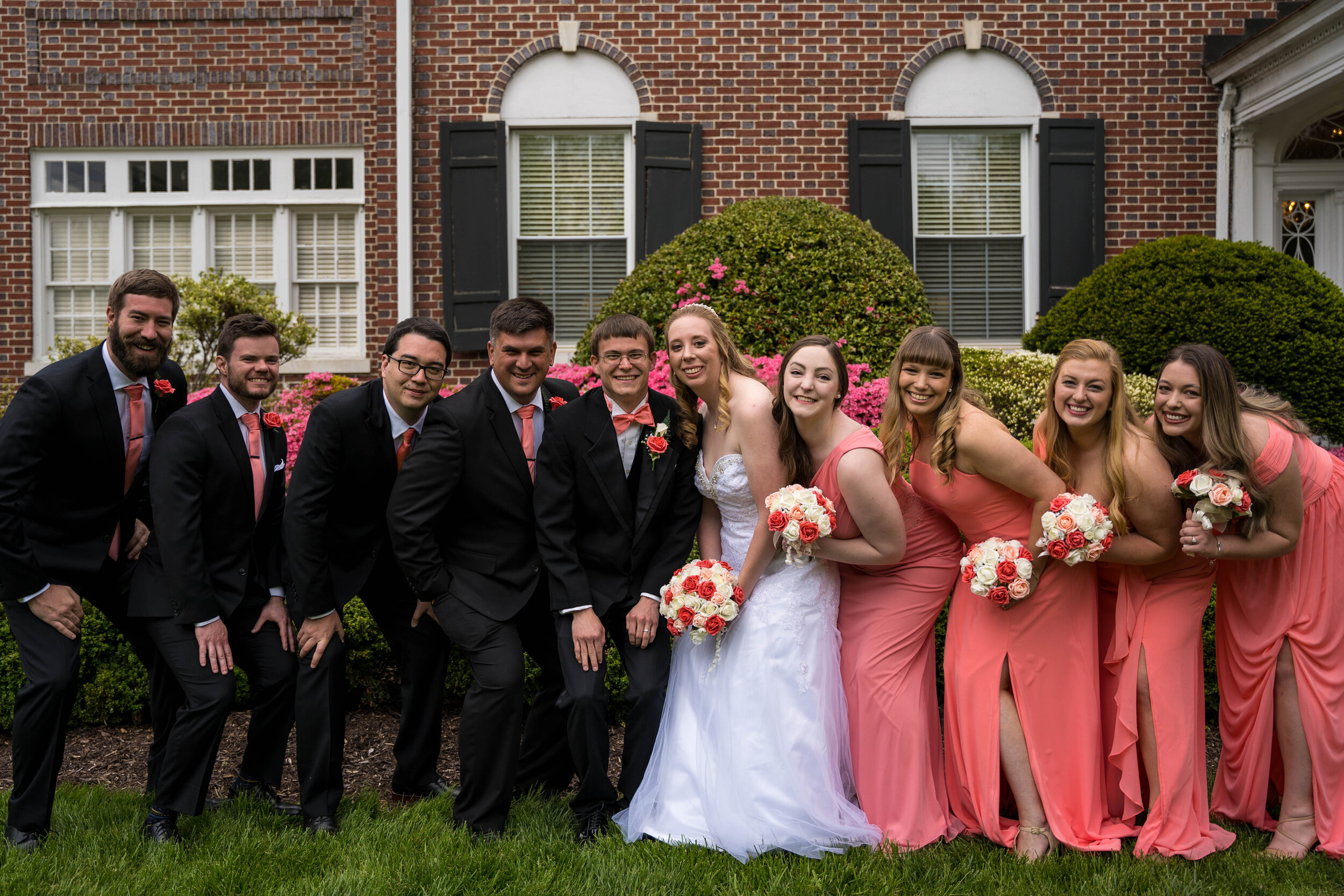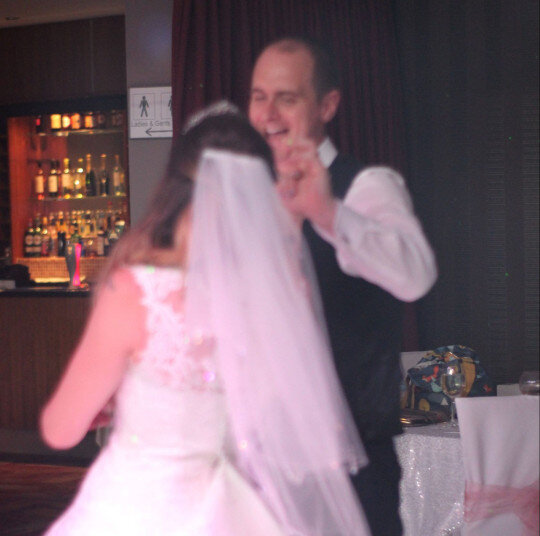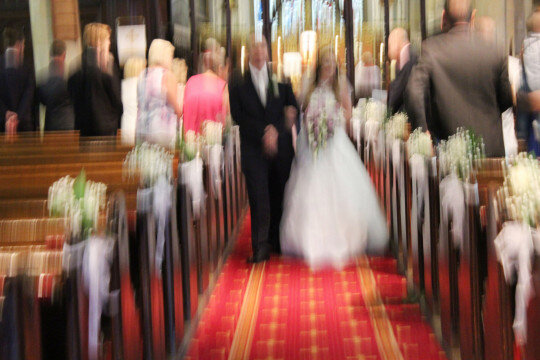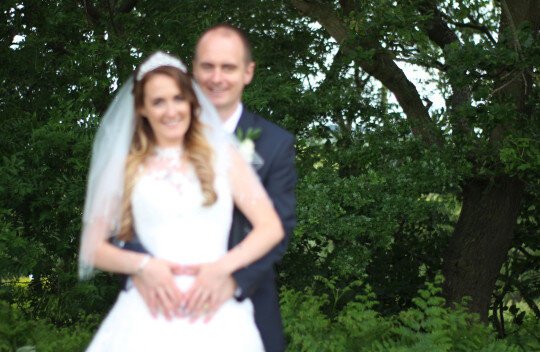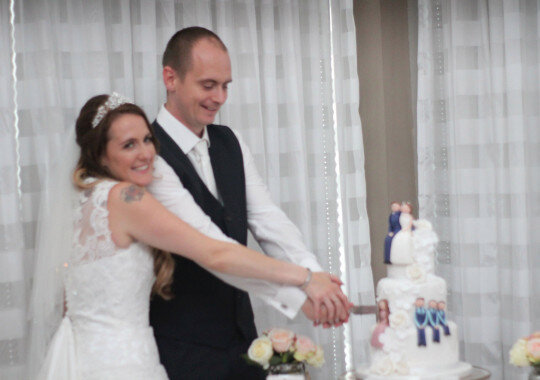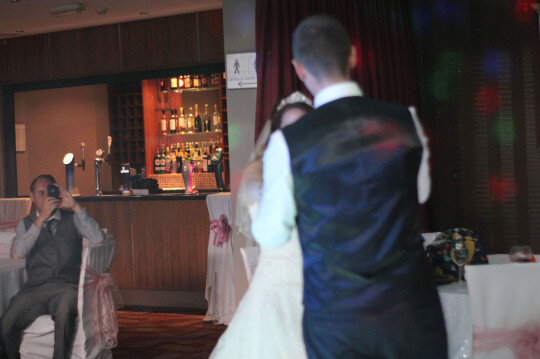The ultimate wedding money savings guide
As a career-long wedding professional, I can clearly tell you that weddings are expensive!
With that in mind, my wife Emma and I have come up with the best possible methods for saving the maximum amount of money with these wedding hacks that we’ve learned over the years and that we share with our own clients.
Before we dive into this wedding planning journey, I want to share two things with you.
First, if you’re serious about saving money, you first need to figure out how much you plan on spending in the first place. That means, sitting with your soon-to-be and having a real conversation about how much you both plan to spend, where that money will come from, and if you plan to go into debt when you walk down the aisle.
We highly suggest you start with the overall amount you plan on spending and use an online tool like the one we created to help give you a roadmap or starting point to create the budget.
Second, you need to be open to doing things a little less traditional. If you’re not open to thinking outside the box or take advantage of hidden wedding secrets, then this is not the article for you.
With that in mind, let’s begin.
It’s a common myth that the wedding venue is the most expensive line item on your wedding budget. Sure, it’s a HUGE chunk of the funding that you will spend, but truthfully your guests will cost more when you combine food, cake, and alcohol.
But right now we’re focused on wedding venues.
If you’ve found a venue that you like, you need to ask about two different things they potentially have and they are ‘off-season’ rates and ‘off-peak’ rates. Let me explain what they are a bit.
Off-Season Rates
Some parts of the United States feature weddings year-round, for me, Florida comes to mind, so they don’t really have an off-season.
But here in Virginia for example, we do and that’s usually from October to mid-March. Those are the timeframes where you can usually save the most amount of money, from 10%-40% or more.
Why?
Because a wedding venue is a business and they need capital (weddings) to keep them operating. While couples tend to think of May, August, or October for a wedding, very few in this region think February for example. So, venues will offer deep discounts in order to book couples.
Off-Peak Rates
If you are dead-set on getting married during the ‘peak’ wedding season, then consider having the wedding on an ‘off-peak’ day, usually a Monday through Thursday.
Again, venues operate with bookings and they will gladly offer a mid-week wedding at a discount. I wrote a great blog about why Wednesday is the best day to get married and several national magazines like Readers Digest picked it up.
You can even score big if you had both an off-peak and off-season wedding, say get married on a Monday in March.
With the national average cost for a wedding venue hovering in the $5,000 range, 40% is a savings of $2,000.
Most couples tend to think of the ‘day-of’ with regards to wedding planning, but a little unknown secret can actually save you far more and that’s booking them for the duration of your wedding planning process.
Let me explain.
Wedding planners (sometimes called wedding manager) are designed with two things in mind:
To guide you through the wedding process with as little stress as possible
To save you money throughout the process
Couples tend to have this notion that hiring them for just the day or month of the wedding is best, however, the longer you have them, the more money they will save.
See unlike you, planners are repeat business for venues, vendors like Carole and myself for example. In exchange for bringing us to repeat business, many companies will lower the rates as a ‘thank you’ for continuing to book them.
You can typically see a savings of 5-15% depending on the vendor.
So let me run through this scenario with you.
Let’s say that hiring a planner for the during of 10 months is $2,500.
Your planner helps you book the venue, the normal price is $6,000, but they were able to secure it for $5,400, saving you $600.
Then, they booked a wedding photographer that you like, but since the planner brings 12 jobs a year to the planner, they discount the normal rate of $3,400 to just $2,999. That’s another $401 in savings.
Just in two bookings, the planner has saved you $1,001.
While that money is being put towards the planner’s overall bill, as vendors are being booked up, that cost will hopefully cover the cost of the planner and in several instances, put money back in your pocket. The benefit here, you are much less stressed and the planner is doing all the work.
The other benefit of having a planner for your wedding is vendors like us. Having someone to turn to throughout the day for what’s planning to happen next is by far one of the biggest assets wedding photographers, videographers, and DJ’s can have at a reception.
It helps give us the plan and keep things on track should they steer away from the plan, which happens far more often than you think.
We do have a couple of recommendations on saving money with people such as us too.
First, finding a company that offers both wedding photos and video can typically saving you a good chunk of cash. As an example, look at our own business model.
We charge $1,799 for photography or choose video for $1,799. However, if you purchase our complete collection, then instead of $3,598, we charge $2,799.
That saves you $799 and you only have to deal with one vendor, one contract.
Now, I will tell you that not all companies that offer both services do a good job at both, in fact, over the last couple of years, photographers are grabbing their husbands and are trying to get on the bandwagon with video, with less than stellar results.
Another thing you can do to try and save money simply has them stay for a much shorter duration of time, like a micro-wedding.
See, you’re being charged based on the amount of time at the wedding PLUS the massive amount of editing time, although you only see it as the time at the wedding.
It’s an iceberg of sorts.
For every hour a photographer or videographer will stay at the wedding, roughly 3 will be in the edit bay processing your images and videos. We generally make far less than people think, in fact, if you already have someone in mind, you can get a much better sense of what they make using our online tool below.
My final piece of advice for booking wedding photographers and videographers is don’t hire a budget range person, hire a mid-range.
Sure, they will cost a bit more, but they will have better gear, make fewer mistakes and you will not end up with horrible wedding images like these.
Catering is one of those expenses that can easily be more than the cost of the wedding venue, depending on how you look at it. We generally see catering to include three things, your food at cocktail hour, dinner combined with your wedding cake, and any alcohol you plan to offer at the wedding.
These line items can range in costs, but most in the wedding industry tend to lump them with a “per person” figure, for example, the average cost of a wedding guest is roughly $70 per head.
Cost Per Guest
What we can tell you is that the best way to save on catering is to be as specific as you can with headcounts and have a plated meal rather than a buffet.
Places like Wedding Wire state not to have a plated meal because it’s more expensive, but they are wrong, and here’s why.
Let’s say that you have 100 guests at the wedding, which includes you, your spouse, guests, and the vendors working the wedding.
100 plated meals, plus an overage of 10%, in case there are others that show up, like unknown plus one’s.
At $30 a person, your reception dinner will cost roughly $3,300.
On a buffet, you are guessing how much food you need because of people having seconds for dinner, even a few having thirds.
Of the 100 guests, say 10% have seconds and another 4% have thirds to eat. Instead of 110, you're now feeding for 114 and you will have an abundance of leftover food to take home or do something with after the fact. Add in the 10% overages, and now your paying for 125 meals at $30 per head, plus all the extra in the buffet people didn’t eat.
Kahn’s Catering for example says that a catering company should never run out of food, so the last person in line sees an abundance of food in line, and that in turn costs the couple more.
“One of the top rules of catering is that you do not run out of food. The last person to pass through the buffet should perceive it to be as abundant as the first. To keep a buffet looking its best, more food than a typical plated meal is necessary and with that, a higher cost is the result. ”
Now, there are always exceptions to the rules, but speaking from experience with a couple of decades under my belt as a wedding expert, plated meals will save you more.
We have a couple of tips with wedding florists, use what’s in season and have your inspiration with you when you meet.
First, when you meet with the florist, don’t just tell them your vision, show it with examples, much like a vision board.
This does a couple of things. First, it puts what’s in your mind in front of the professionals that are doing the work, so they have a much better understanding of what you are looking for with regards to the wedding.
Additionally, use flowers that are in season, generally, they will be cheaper than special ordering them from overseas. While most will come from overseas, having to order flowers that are not in season in the US means they will need to come from another part of the globe, which will cost you more.
The most effective method of saving money with flowers is to buy them wholesale and DIY. However, most wholesale companies will only sell flowers to florists, so going this route will be a bit difficult, aside from just knowing how to make arrangements in the first place.
The Truth About Weddings (Vendors Won’t Tell You)
The absolute truth of the matter is that you don’t need to spend a pile of money in order to get married, in fact for less than $100 in most locations, you can get a justice of the peace to perform a ceremony at a courthouse and file the paperwork.
Vendors won’t tell you that you don’t NEED them to have a wedding, it’s their livelihood and I completely get it.
So if couples don’t NEED to have lavish or full-scale wedding days, then why do they do them?
Because in part it’s wanting to celebrate with friends, family and their loved ones and it’s partly embedded into our society to have a big party or celebration of the day.
The truth is that there is no right way or wrong way to have a wedding, so yes, you can have a full-scale wedding if you want AND you can save money in the process if you look at things from a logical point of view instead of an emotional point of view.
That’s what we want you to take away from our articles, have a wedding, have fun, but be smart about the choices that you make when it comes to your finances.






